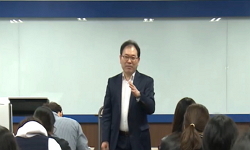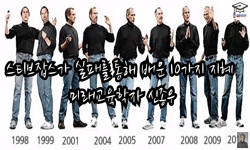제4차 산업혁명시대의 미래 인재에 대한 진지한 담론 속에 미래교육에 대한 관심이 높아지고 있다. 이에 미래사회를 위한 혁신적인 교육 키워드들이 소개되면서, 메이커 교육이 주목을 받고...
http://chineseinput.net/에서 pinyin(병음)방식으로 중국어를 변환할 수 있습니다.
변환된 중국어를 복사하여 사용하시면 됩니다.
- 中文 을 입력하시려면 zhongwen을 입력하시고 space를누르시면됩니다.
- 北京 을 입력하시려면 beijing을 입력하시고 space를 누르시면 됩니다.

학교 안 메이커스페이스(Makerspace)기반 메이커 교육의 학습과정 탐색 = Exploring the Learning Process of Makerspace-based Maker Education in School
한글로보기https://www.riss.kr/link?id=A106364764
- 저자
- 발행기관
- 학술지명
- 권호사항
-
발행연도
2019
-
작성언어
-
-
주제어
maker education ; makerspace ; learning process ; failure ; 메이커 교육 ; 메이커스페이스 ; 학습과정 ; 실패
-
등재정보
KCI등재
-
자료형태
학술저널
- 발행기관 URL
-
수록면
159-192(34쪽)
-
KCI 피인용횟수
9
- DOI식별코드
- 제공처
- 소장기관
-
0
상세조회 -
0
다운로드
부가정보
국문 초록 (Abstract)
제4차 산업혁명시대의 미래 인재에 대한 진지한 담론 속에 미래교육에 대한 관심이 높아지고 있다. 이에 미래사회를 위한 혁신적인 교육 키워드들이 소개되면서, 메이커 교육이 주목을 받고 있다. 선행연구는 메이커 교육의 효과를 보고하지만 실제적으로 학습과정이 수행되는 맥락을 심층적으로 분석하여 소상히 보여준 연구는 많지 않다. 이에 본 연구에서는 형식교육에서 메이커스페이스 기반 메이커 활동을 경험할 수 있는 메이커 교육의 사례를 대상으로 질적 연구를 통해 어떠한 학습과정이 일어나는지 탐색하고자 한다. 이를 위한 두 가지 연구문제는 첫째, 학교 안 메이커스페이스에서 학습자의 학습과정은 어떠한 특징이 있는가? 둘째, 학교 안 메이커스페이스에서 학습자의 실패를 통한 학습은 어떠한 특징이 있는가? 이다. 본 연구는 메이커스페이스 기반 경기도 W고등학교의 방과 후 메이커 교육 사례를 선정하여 메이킹을 완료한 4팀, 총 13명의 학생을 연구대상으로 하였고, 약 28주간 진행된 관찰일지, 심층 면담 자료, 활동 및 성찰일지, 결과물을 수집하였다. 수집한 자료는 연구 결과를 도출하기 위해 귀납적 분석방법을 활용하여 분석하였다. 연구 결과, 학교 안 메이커스페이스에서의 학습과정의 특징은 학습자의 맥락에서 추출한 주제 선정, 설계의 반복적인 수정과 메이커의 공유 동영상을 반영한 계획, 다양한 영역의 융합과 다차원적 주체와 상호작용한 메이킹, 장비 활용과 결과물 시연에 초점을 둔 동영상의 공유로 나타났다. 둘째, 학교 안 메이커스페이스에서의 실패를 통한 학습과정은 실패 상황-실패 극복 과정-극복 결과이다. 학습자는 실패 상황에 직면하면 이를 극복하기 위해 실패의 원인을 분석하고 극복전략과 자원을 탐색 및 선정하여 수행 지식, 기능, 자신감이 향상되었다. 이 결과를 바탕으로 형식교육에 메이커 교육 적용시 고려해야 할 교수설계방안을 제시하였다.
다국어 초록 (Multilingual Abstract)
Future education in the era of the Fourth Industrial Revolution is drawing attention to serious discussions about future human resources. Among future education, the maker education is attracting attention. Although previous studies have reported the ...
Future education in the era of the Fourth Industrial Revolution is drawing attention to serious discussions about future human resources. Among future education, the maker education is attracting attention. Although previous studies have reported the effects of maker education, there are not many studies showing in detail by analyzing the context in which the actual learning process is carried out. Therefore, the study aims to find out what kind of learning process is taking place in the case of makerspace-based maker education in formal education. Two research questions are as follows: First, what is the learner's learning process of makerspace-based maker education in school? Second, what are the characteristics of learning by learner's failure in makerspace-based maker education in school? This study selected after-school maker education program of W high school in Gyeonggi-do based on the Makerspace and selected a total of 13 students, four teams that complete the making process, as research targets, and collected observation journals, in-depth interview materials, activities and reflection logs that lasted for about 28 weeks. Data sources include observation logs, in-depth interview data, activities and reflection logbooks and products about 28 weeks. The collected data were analyzed using inductive analysis. As a result of the study, characteristics of the learning process in the school include the selection of the topics extracted from the context of the learner, the repetitive modification of the design, the plan reflecting the shared video of the maker, the convergence of various areas, sharing of videos focused on equipment utilization and product demonstrations. Second, the learning process through failures in maker education includes failure situation - failure overcome process - overcoming. That is, learners analyzed the cause of failure, explored and selected coping strategies and resources, and finally enhanced their performance knowledge, skills, and confidence on making tasks when they encountered failure situations. Based on these results, some implications for instructional design for maker education to formal education are suggested.
참고문헌 (Reference)
1 윤성혜, "청소년 기업가정신 함양을 위한 메이커교육 프로그램 모형 개발" 한국교육공학회 33 (33): 839-867, 2017
2 박주용, "창의적 사고 중심의 ICT․디자인융합 개방형 제작공간 프레임워크 연구" 서울과학기술대학교 2015
3 문찬, "창의적 개발자 양성을 위한 공학·디자인 융합교육 실천연구" 한국문화산업학회 16 (16): 23-31, 2016
4 김영천, "질적연구 방법론 Ⅰ" 문음사 2006
5 Creswell, J. W., "질적 연구방법론 : 다섯 가지 접근" 학지사 2010
6 Stake, R. E., "질적 사례 연구" 창지사 2000
7 Creswell, J. W., "연구방법 질적, 양적 및 혼합적 연구의 설계" 시그마프레스 2017
8 김종백, "실수-기반 학습의 의미와 교육적 시사점" 한국교육심리학회 24 (24): 895-913, 2010
9 Yin, R. K., "사례연구방법" 한경사 2011
10 변문경, "발명 교실 학생들의 메이커 교육에 대한 인식 분석" 한국과학교육학회 38 (38): 1-9, 2018
1 윤성혜, "청소년 기업가정신 함양을 위한 메이커교육 프로그램 모형 개발" 한국교육공학회 33 (33): 839-867, 2017
2 박주용, "창의적 사고 중심의 ICT․디자인융합 개방형 제작공간 프레임워크 연구" 서울과학기술대학교 2015
3 문찬, "창의적 개발자 양성을 위한 공학·디자인 융합교육 실천연구" 한국문화산업학회 16 (16): 23-31, 2016
4 김영천, "질적연구 방법론 Ⅰ" 문음사 2006
5 Creswell, J. W., "질적 연구방법론 : 다섯 가지 접근" 학지사 2010
6 Stake, R. E., "질적 사례 연구" 창지사 2000
7 Creswell, J. W., "연구방법 질적, 양적 및 혼합적 연구의 설계" 시그마프레스 2017
8 김종백, "실수-기반 학습의 의미와 교육적 시사점" 한국교육심리학회 24 (24): 895-913, 2010
9 Yin, R. K., "사례연구방법" 한경사 2011
10 변문경, "발명 교실 학생들의 메이커 교육에 대한 인식 분석" 한국과학교육학회 38 (38): 1-9, 2018
11 홍성민, "미래산업․신산업 분야 인재기반 조성을 위한 인적자원 양성 및 취․창업 지원방안 연구" 과학기술정책연구원 2016
12 Martinez, S. L., "메이커혁명, 교육을 통합하다" 홍릉과학 2015
13 남기원, "메이커스페이스 탐색을 통한 유아 메이커 교육 고찰" 한국영유아교원교육학회 21 (21): 205-228, 2017
14 이창윤, "메이커 활동에 기반을 둔 화학 탐구 R&E 프로그램의 사례연구" 학습자중심교과교육학회 18 (18): 131-154, 2018
15 강인애, "메이커 활동(Maker Activity)의 초등학교 수업적용 가능성 및 교육적 가치 탐색" 학습자중심교과교육학회 17 (17): 487-515, 2017
16 황중원, "메이커 페다고지(Maker Pedagogy)로서 TMSI 모형의 가능성 탐색: 고등학교 사례를 중심으로" 1 : 166-176, 2016
17 Hatch, M., "메이커 운동 선언" 한빛미디어 2014
18 강인애, "메이커 교육(Maker education)을 통한 메이커 정신(Maker mindset)의 가치 탐색" 한국콘텐츠학회 17 (17): 250-267, 2017
19 강인애, "메이커 교육(Maker Education)을 통한 기업가정신 함양: 대학교 사례연구" 한국융합학회 8 (8): 253-264, 2017
20 강은성, "메이커 교육 아웃리치(outreach) 프로그램을 통한 교육적 효과: 자유학기 활동 사례를 중심으로" 경희대학교 대학원 2017
21 강인애, "메이커 교육 4차 산업혁명시대에 다시 만난 구성주의" 내하출판사 2017
22 김현진, "국내 교육공학 질적 연구 동향 분석" 한국교육공학회 34 (34): 309-344, 2018
23 김양수, "고등교육에서 메이커 교육을 통한 기업가정신 함양 연구" 경희대학교 대학원 2017
24 Buechley, L., "Towards a curriculum for electronic textiles in the high school classroom" 39 (39): 28-32, 2007
25 Ryoo, J. J., "Tinkering with “Failure”: Equity, learning, and the iterative design process" 2015
26 Martin, L., "The promise of the maker movement for education" 5 (5): 4-, 2015
27 Halverson, E. R., "The maker movement in education" 84 (84): 495-504, 2014
28 Peppler, K., "Survey of makerspaces, Part II" Open Portfolios Maker Education Initiative 2015
29 Kapur, M., "Productive failure" 26 (26): 379-424, 2008
30 Blikstein, P., "Meaningful making: Projects and inspirations for Fab Labs and makerspaces" Constructing Modern Knowledge Press 2-23, 2016
31 Thomas, A., "Making makers: Kids, tools, and the future of innovation" Maker Media, Inc 2014
32 Litts, B. K., "Making learning: Makerspaces as learning environments" University of Wisconsin-Madison 2015
33 Brahms, L., "Making as a learning process: Identifying and supporting family learning in informal settings" University of Pittsburgh 2014
34 Cohen, J., "Makification : Towards a framework for leveraging the maker movement in formal education" 26 (26): 217-229, 2017
35 Brown, R. A., "Makerspaces in informal settings" 57 (57): 75-77, 2017
36 Hlubinka, M., "Makerspace playbook: School edition"
37 Peppler, K., "Maker movement spreads innovation one project at a time" 95 (95): 22-27, 2013
38 Brahms, L., "Makeology: Makers as learners (Volume 2)" Routledge 2016
39 Sheridan, K., "Learning in the making: A comparative case study of three makerspaces" 84 (84): 505-531, 2014
40 Tulis, M., "Learning from Errors: A model of individual processes" 4 (4): 12-26, 2016
41 Wardrip, P. S., "Learning Practices of Making: Developing a framework for design" ACM 375-378, 2015
42 Hannafin, M., "Instructional-design theories and models: A new paradigm of instructional theory, (Volume II)" Erlbaum 1999
43 Schank, R. C., "Instructional-Design theories and models: A new paradigm of instructional theory" Lawrence Erlbaum Associates 161-181, 1999
44 Maltese, A. V., "Failing to learn: The impact of failures during making activities" 30 : 116-124, 2018
45 Smith, S., "Epic Fails: Reconceptualizing failure as a catalyst for developing creative persistence within teaching and learning experiences" 23 (23): 329-355, 2015
46 Blikstein, P., "Digital fabrication and ‘Making’ in education: The democratization of invention" 4 : 1-21, 2013
47 Dougherty, D., "Design, make, play: Growing the next generation of STEM innovators" Routledge 7-11, 2013
48 Honey, M., "Design, make, play: Growing the next generation of STEM innovators" Routledge 2013
49 Kafai, Y. B., "Constructionist gaming beyond the screen: Middle school students' crafting and computing of touch pads, board games, and controllers" 49-54, 2015
50 Baleshta, J., "Closing the loop: Integrating 3D printing with engineering design graphics for large class sizes" 3 : 2015
51 Wilczynski, V., "Academic maker spaces and engineering design" 26 : 1-19, 2015
52 미래창조과학부 미래준비위원회, "10년 후 대한민국 미래일자리의 길을 찾다: 미래전략 보고서" 지식공감 2017
동일학술지(권/호) 다른 논문
-
한국교육공학연구: 초기 및 최근 연구들의 연구 목적과 연구 방법
- 한국교육공학회
- 오은정 ( Eunjung Grace Oh )
- 2019
- KCI등재
-
대학생 대상의 디자인 사고 교육이 창의성역량에 미치는 영향
- 한국교육공학회
- 원연정 ( Yeonjung Won )
- 2019
- KCI등재
-
학습관리시스템(LMS) 데이터를 활용한 기술수용모형의 사용의도와 실제사용 간의 관계 분석
- 한국교육공학회
- 김기범 ( Kibeom Kim )
- 2019
- KCI등재
-
의미연결망분석을 통한 가상 환경 기반 대화 시뮬레이션에서의 학습경험 탐색
- 한국교육공학회
- 최동연 ( Dongyeon Choi )
- 2019
- KCI등재
분석정보
인용정보 인용지수 설명보기
학술지 이력
| 연월일 | 이력구분 | 이력상세 | 등재구분 |
|---|---|---|---|
| 2027 | 평가예정 | 재인증평가 신청대상 (재인증) | |
| 2021-01-01 | 평가 | 등재학술지 유지 (재인증) |  |
| 2018-01-01 | 평가 | 등재학술지 유지 (등재유지) |  |
| 2015-01-01 | 평가 | 등재학술지 유지 (등재유지) |  |
| 2011-01-01 | 평가 | 등재학술지 유지 (등재유지) |  |
| 2009-01-01 | 평가 | 등재학술지 유지 (등재유지) |  |
| 2007-01-01 | 평가 | 등재학술지 유지 (등재유지) |  |
| 2004-01-01 | 평가 | 등재학술지 선정 (등재후보2차) |  |
| 2003-01-01 | 평가 | 등재후보 1차 PASS (등재후보1차) |  |
| 2002-01-01 | 평가 | 등재후보 1차 FAIL (등재후보1차) |  |
| 1999-07-01 | 평가 | 등재후보학술지 선정 (신규평가) |  |
학술지 인용정보
| 기준연도 | WOS-KCI 통합IF(2년) | KCIF(2년) | KCIF(3년) |
|---|---|---|---|
| 2016 | 3.7 | 3.7 | 3.26 |
| KCIF(4년) | KCIF(5년) | 중심성지수(3년) | 즉시성지수 |
| 2.89 | 2.68 | 3.751 | 0.75 |





 KCI
KCI KISS
KISS







